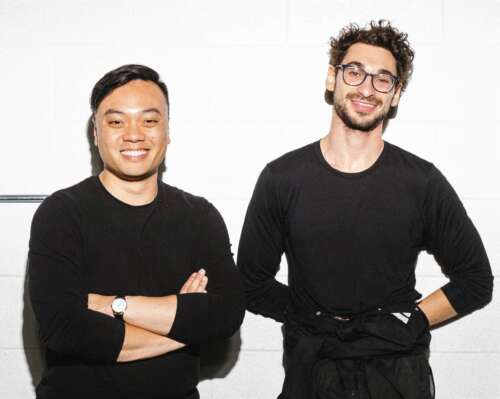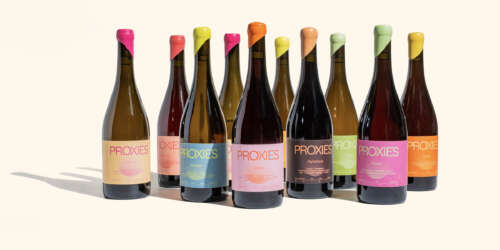Cole Pearsall may have been named to this year’s Forbes 30 Under 30 list, but Acid League, the company he co-founded with three partners, owes its success to a collaborative mentality and a foundation in the Food Science program at the University of Guelph.
Pearsall and co-founder, Allan Mai are both U of G graduates and together they dreamed up the idea for Acid League, a company that has now generated close to $20 million in revenue.
Pearsall tips his hat to the many partners Acid League has collaborated with, both internally and externally, to generate the brand’s success. The original founding team of four includes Scott Friedmann and creative director Rae Drake.
“It’s important to say that if the others were under 30, they’d be on the list too. Of course, I wouldn’t be there without my co-founders,” he says.
The Forbes 30 Under 30 honour has highlighted the brand’s success, and Pearsall says the goal now is to continue building a stable, profitable company for years to come.
Acid League owes its foundation to U of G Food Science program
Upon graduation, Pearsall worked for The Future Food Studio, a Toronto-based experiential food and design lab that innovates food and beverage through art, design, science and technology.
He credits U of G with a deep sense of preparedness for what lies ahead. “The skills learned as a food science graduate create many pathways to use the knowledge gained to pursue their interests,” he says.

In the early days of Acid League, Pearsall and Mai returned to Guelph, finding space to work in the Guelph Food Innovation Centre at U of G. GFIC director Derek Vella, “was a supportive and experienced resource for us,” he says.
The Food Science program provided a unique opportunity, Pearsall says, to receive a university education that was practical in nature. Application-based courses such as dairy processing got him into the lab making ice cream or food chemistry where he gained a fundamental understanding of how to manipulate food molecules.
“We have used that knowledge from day one in our business,” he says.
Pearsall first heard about the program from his Grade 12 chemistry teacher. He started at U of G as a general science student and transferred into food science after his second year.
“I’m immensely grateful to have gotten into that program,” he says. “I’m a very proud Guelph graduate. If it wasn’t for U of G, I wouldn’t be in the position I’m in.”
Acid League was born from what Pearsall calls “a huge white space in the fermented foods market.” At the time, there was a growing movement toward craft beer and bio-organic wine. Foods like sauerkraut and kimchi were seeing a resurgence and apple cider vinegar shots had become a go-to for the health conscious.
“There was no brand loyalty,” he points out. “Nobody could tell you what vinegar brand they had in their pantry.”
Not since balsamic vinegar entered the market in the ‘80s had there been any market penetration, he explains. Adding to that was the fact that vinegar is a core component in nearly every shelf staple product in the grocery store.
“As food scientists, we understand this,” he says. “But the average person wouldn’t, necessarily.”
Entrepreneurial mindset leads to start-up success

Acid League formed in 2019 and in 2020 rolled out with vinegar products before expanding with dressings, hot sauces, condiments and beverages.
Proxies, its line of non-alcoholic wine launched in 2022, was so successful they made it a separate company.
Between retail, direct-to-consumer, and limited-edition offerings, Acid League has launched hundreds of products since the early days when the team would rent space at GFIC to experiment with product development.
Acid League’s products are found on the shelves of Whole Foods stores across North America.
“It’s a very inclusive brand,” Pearsall says. “We love to collaborate and work with other companies and create something bigger than ourselves.”
Pearsall also worked with The Hub Incubator which supports student innovators who want to build their own start-up businesses at the John F. Wood Centre. As a start-up that launched just before the pandemic, he says Acid League was able to understand the market and quickly adapt.
“I love being entrepreneurial. The vision has always remained the same. We have drawings of how Acid League was going to manifest and we’re pretty much there five years later.”
